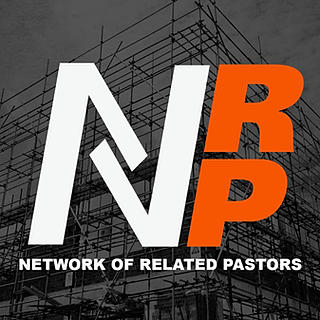Leadership in Context Episode 60 Show Notes
- NRP
- Nov 5, 2019
- 4 min read

Mistakes to Avoid in Building a Team, pt2
Leadership in Context with Keith Tucci
Episode 060
Mistake #1: Putting team building on hold to wait for better people.
Mistake #2: Not identifying, defining, and communicating the values of the team.
When you are building a team, before you give anyone a title or authority, you need to establish what your values are. What specific character traits are you looking for in your team members? Beyond naming them, you need to define those character traits. Here are a few that I feel are very important.
1. Giving
You don’t want someone on the team who is not a giver, whose heart is not invested in giving. But you have to define giving. At a minimum, that is someone who is a tither. It is also someone who goes beyond tithing. Be clear that giving, as you have defined it, is part of the qualifications of being part of the team.
2. Lifestyle
I would call this “guarding your testimony.” What are the testimony things that are important to you, that you want to be part of the character of this team? Example: When I had people serving on an executive team (the elders), I asked them to abstain from the use of alcohol. I did not hold it against people if they did some moderate drinking. I just asked the people on my leadership team if they would be willing to give it up. If you have a team and you are the leader of that team, you can and need to define the culture of that team. You need to communicate that in that team’s value system there are some things that are worth laying down to promote leadership. Clarify the lifestyle issues that you are looking for—regular church attendance, always being there when you have guests in, working vacation schedules around the activities of the church, etc.
3. Forthrightness
I have made some mistakes in my leadership. Some I have made on my own, and some I had help with. What I need from a team is people who will help me NOT make those mistakes. The biggest way people help me make mistakes is when they were not truthful or forthright in regards to how they thought about something or someone in a certain situation. We need people on our team who will speak up.
4. Confidentiality
You need to teach your team and set a standard on what is confidential and what isn’t. Confidence has two sides. One of the rules we had for anyone in ministry is that they were not allowed to take confidences. If someone came to them and asked them not to tell anyone what they were about to say, our team culture was to respond with, “You are going to have to trust my discretion.” In all my years in ministry, only one time have I ever had anyone respond by not telling me what they wanted to say. On the other side, you have to know that when you hear information, there are parts of that information that are not to be repeated, even to your spouse.
5. Understanding Your Volume
Once you are recognized as part of a leadership team, you have to realize that your voice, even when spoken softly, carries a higher volume. You have to be a steward of that volume. When pastors ask me to interview potential leaders, this is something I always spend some time talking about. To some degree, as a leader, you lose the right to your own opinion. You speak for the ministry. You are an ambassador. Anything you say will be accentuated. This is especially true when you are talking about considerations and promises. There is a lot of damage done in local churches and ministries when there is a perceived failure to execute a promise. The failure of unmet expectations does more damage than the failure of function or the failure of performance in most local churches. Part of the culture of the team is to guard your personal testimony, but also guard the TEAM testimony so that the team is looked at as people who keep their word, keep their promises, follow through, and do their due diligence.
6. Presbytery
This is a critical one that tends to get left out. A presbytery is a leadership team that your leadership team can refer issues to in order to get counsel and to act as a binding delegate, if needed in a situation. You communicate with your team that if there is a conflict on your team, these are the people they are permitted to talk to about it. Your team needs to be very clear on this. If they have a disagreement with the pastor or other team members, they need to know who they can talk to about that.
These are just a few key things that we tend to leave out when we have promoted someone. We think that we are all on the same page and we see that we have giftings that complement each other, but we often fail to talk about and define the values of the team. Identify those values, clearly define them, and communicate them to every member of the team.
Join us next week as Keith Tucci continues to put leadership truth in the context of the local church. And as always, please like, share, rate/review, and invite others to listen. See you next week!







Comments